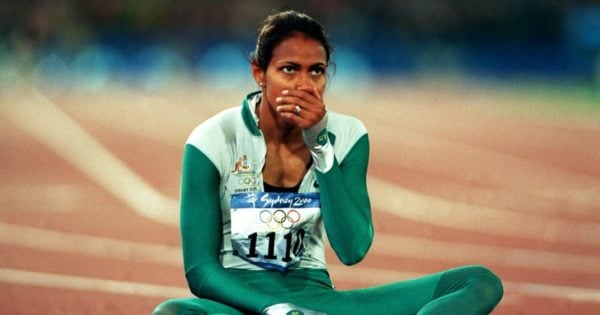It’s one of the most iconic moments in Australian sporting history. The Sydney 2000 Olympic Games. Cathy Freeman, in her green, gold and silver bodysuit, strides across the 400m finish line. She pulls off her hood, shakes her head and sits on the tartan track, unsmiling, suddenly a gold medallist.
At the time and in the nearly 17 years since, most have assumed Freeman had experienced a moment of shock, that she’d become overwhelmed by the incredible feat she’d just achieved.
But speaking to podcast The Howie Games, the now 44-year-old said that in moments after she crossed the line that September evening, what she actually felt was disappointment.
“I actually crossed the line, looked across at the time — 49.11 — I was immediately disappointed because I would have loved to have run 48,” she told host Mark Howard.
“I just remember leaning over, putting my hands around my knees and just shaking my head… I was not happy. It’s a mighty occasion. I don’t mean to sound like a Debbie Downer, but that’s just who I am.”


Top Comments
It's human nature to always want to do and be better, to feel a bit down when you don't meet your own personal goal but still it was a hell of an achievement regardless and she is still proud I'm sure!